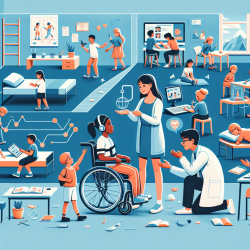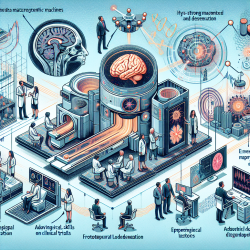The recent study on MEIS2 (15q14) gene deletions provides significant insights into the genetic causes behind certain developmental phenotypes. This research has important implications for practitioners working with patients exhibiting mild developmental delays and orofacial clefts such as bifid uvula. Understanding these genetic underpinnings is crucial for improving therapeutic approaches and providing accurate genetic counseling.
Key Findings from the Research
The study documented a case of two siblings with a non-mosaic 423 kb genomic deletion at 15q14, affecting the MEIS2 gene. Both siblings showed mild developmental delay and bifid uvula, while their father was found to be a mosaic carrier of the same deletion. This discovery marks the first instance of a familial genomic deletion resulting in MEIS2 partial truncation inherited from a mosaic parent.
Implications for Genetic Counseling
- Recurrence Risk Assessment: The study highlights the importance of assessing recurrence risks in families with known MEIS2 deletions. Practitioners should consider mosaicism in parents when evaluating potential genetic transmission.
- Comprehensive Testing: It is recommended that individuals presenting with mild bifid uvula and developmental delays undergo comprehensive MEIS2 testing, covering both point mutations and microdeletions.
Practical Applications for Practitioners
Practitioners can leverage these findings to enhance their diagnostic and therapeutic strategies:
- Enhanced Diagnostic Protocols: Incorporate advanced genetic testing techniques such as chromosome microarray (CMA) and fluorescence in situ hybridization (FISH) to identify potential MEIS2 deletions or mutations.
- Tailored Interventions: Develop personalized intervention plans that address specific developmental challenges associated with MEIS2-related phenotypes.
- Family Counseling: Provide informed genetic counseling to families, emphasizing the significance of mosaicism and its implications for future offspring.
The Role of Further Research
This study opens up avenues for further research into genotype-phenotype correlations involving MEIS2 mutations. Additional clinical cases are needed to establish more precise correlations between specific genetic alterations and their phenotypic manifestations. Practitioners are encouraged to stay updated on emerging research to refine their understanding and approach to treating related conditions.
To read the original research paper, please follow this link: MEIS2 (15q14) gene deletions in siblings with mild developmental phenotypes and bifid uvula: documentation of mosaicism in an unaffected parent.










